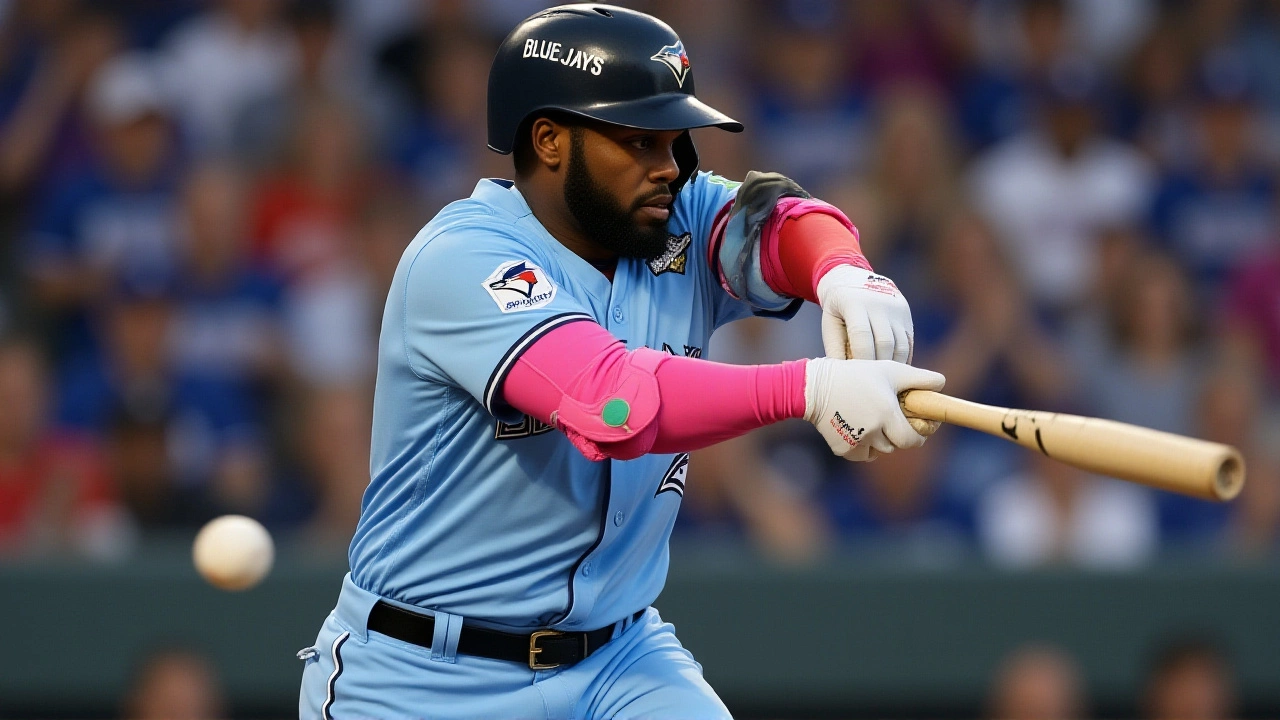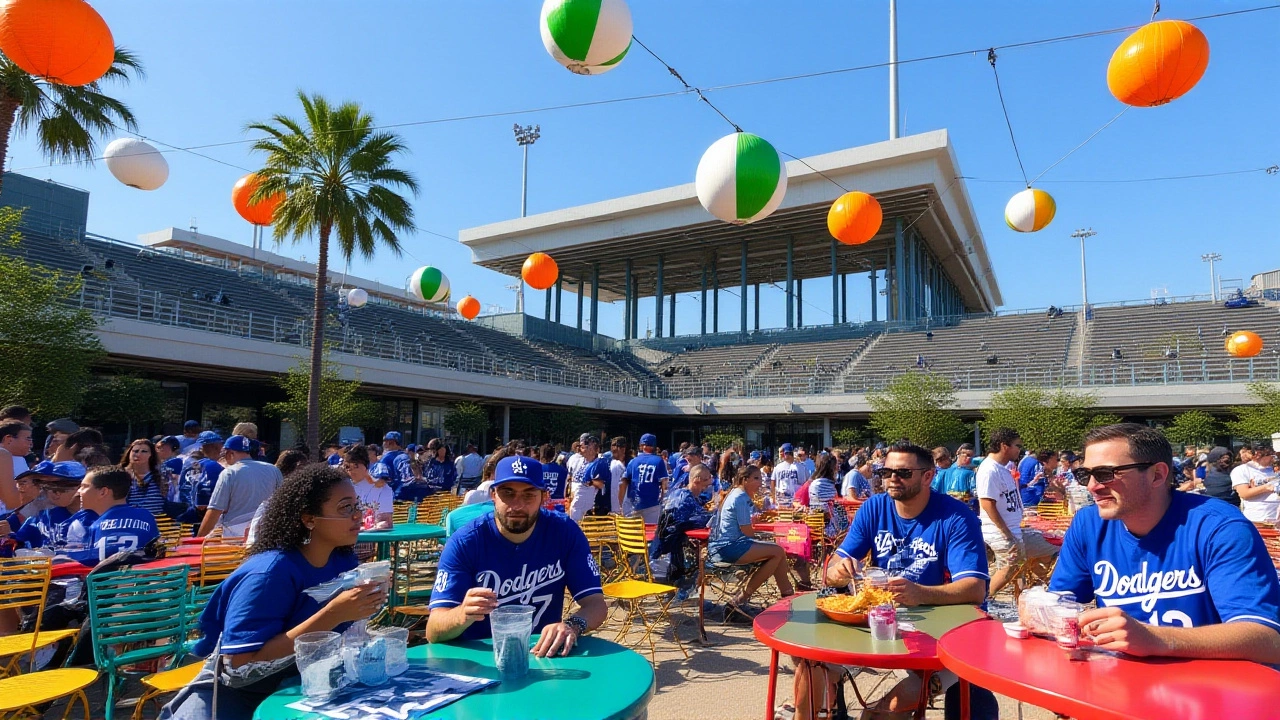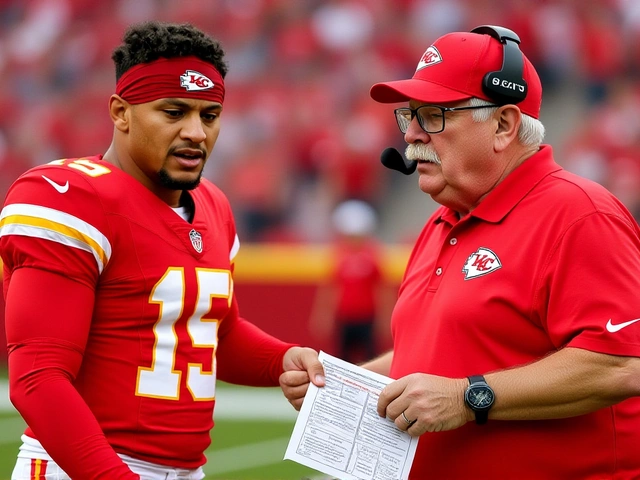On a crisp Wednesday night in Los Angeles, Davis Schneider changed the trajectory of a franchise with one swing. At 7:00 PM Pacific Time, just moments after the first pitch of Game 5 of the 2025 World SeriesDodger Stadium, Schneider launched a 97.5 mph fastball from Blake Snell into the left-field seats — a 373-foot solo shot that sent the Toronto Blue Jays’ dugout into a frenzy. It wasn’t just a home run. It was a statement. And it came on the first pitch. No setup. No patience. Just pure, unfiltered aggression — the kind that wins championships.
Back-to-back bombs set the tone
Before the Dodgers could even blink, Vladimir Guerrero Jr. stepped in and did the unthinkable: he answered with a rocket of his own — a 401-foot blast to right field. Back-to-back leadoff homers in a World Series game? That hadn’t happened since 2002. The crowd at Dodger Stadium, still buzzing from their team’s Game 4 win the night before, fell silent. The Blue Jays led 2-0 with zero outs. The energy shifted. The momentum, once held by the Dodgers, now belonged to Toronto.
Snell, the left-handed ace who had allowed just two runs in 21 postseason innings before this series, looked rattled. He’d thrown 96.6 mph with a spin rate of 2,514 rpm — a pitch he’d trusted all season. But Schneider, who’d spent the last three months adjusting his stance from open to closed to neutral, didn’t wait. He attacked. And he paid off. FOX Sports’ live blog noted the Blue Jays’ game plan was clear: “Take the first pitch. Don’t let Snell settle.” They didn’t just follow it — they executed it perfectly.
A rookie’s record night
But the night belonged to more than just the bats. Enter Trey Yesavage, the 21-year-old rookie from Georgia who hadn’t started a single game in the regular season. He took the mound in the fifth inning with the Blue Jays up 4-1 and delivered the performance of his life — 12 strikeouts, 5 hits, no walks. It was the most strikeouts ever by a rookie in World Series history, surpassing the previous record of 11 set by Fernando Valenzuela in 1981. Yesavage didn’t just pitch. He dominated. His slider, clocked at 88 mph with 2,800 rpm of spin, looked like a knife cutting through butter. Dodgers hitters swung through it so often, you could hear the cracks echoing in the empty seats.
By the time the final out was recorded — a pop-out to second base — the Blue Jays had won 6-1. The series lead? 3-2. One win away from their first championship since 1993. One win away from making history as the first Canadian team to win a World Series in 32 years.

The emotional weight behind the swing
After the game, Schneider sat in the interview room, eyes still glassy. His voice cracked as he spoke about his father, who’d filmed the home run from the stands — a shaky, handheld clip that quickly went viral. “He’s been coming to every game since I was six,” Schneider said. “He didn’t say a word when I hit it. Just stood there, camera shaking. I knew he was crying.”
The moment wasn’t just about stats or records. It was about legacy. The Blue Jays haven’t won it all since Joe Carter’s walk-off homer in 1993. That team had Carter, Alomar, Devon White — legends. This team? Young, hungry, unproven outside of Guerrero Jr. But now? They’re one game from rewriting history.
What’s next: Toronto or Los Angeles?
Game 6 is set for Rogers Centre on Friday, October 31, with the Blue Jays’ ace, Alek Manoah, on the mound. The Dodgers, down 3-2, face elimination. And for the first time since 2000, a team could be one win away from a three-peat — but not the Dodgers. They’ve lost two straight after winning Games 2 and 3. Their offense, which averaged 5.8 runs per game in the first four games, managed just one run on Wednesday. Mookie Betts went 0-for-4. Freddie Freeman struck out twice. The magic is fading.
Meanwhile, Toronto’s lineup — now hitting .312 in the series — has found its rhythm. Schneider’s leadoff homer wasn’t an anomaly. It was the start of something bigger. A pattern. A mentality. The Blue Jays aren’t just playing to win. They’re playing to prove they belong.

Why this matters beyond the box score
This isn’t just about baseball. It’s about national identity. Canada hasn’t had a World Series champion since 1993. That’s 32 years. A generation. Kids born after the Blue Jays’ last title have never seen their country lift the trophy. Now, with Rogers Centre packed and the entire nation watching, the weight is real. The Dodgers? They’ve won two titles in the last five years. They’re used to the spotlight. But Toronto? They’re chasing ghosts. And they’re getting closer.
The 2025 World Series has already been one of the most unpredictable in modern history. The Blue Jays lost Game 1 — and then won four straight. Snell, the postseason darling, gave up five homers in Game 1 and couldn’t get through the first inning in Game 5. The Dodgers’ bullpen, once impenetrable, has now allowed 11 runs over the last three games. This isn’t luck. It’s momentum. And it’s roaring.
Frequently Asked Questions
How did Davis Schneider’s home run impact the Blue Jays’ chances in the series?
Schneider’s leadoff homer in Game 5 gave the Blue Jays an immediate psychological edge, setting the tone for a 6-1 win and putting them one victory away from their first title since 1993. It was the first leadoff homer in World Series Game 5 since 2002 and sparked back-to-back homers with Vladimir Guerrero Jr., a rare feat that demoralized the Dodgers and energized Toronto’s entire roster.
Why was Blake Snell so vulnerable in Game 5 after dominating earlier in the postseason?
Snell had allowed just two runs in 21 postseason innings before the World Series, but the Blue Jays adjusted their approach: they attacked early-count pitches. In Game 1, he gave up five homers. In Game 5, Schneider swung at the first pitch — a 96.6 mph fastball — and crushed it. Snell’s reliance on his fastball became predictable, and Toronto’s hitters, led by Schneider and Guerrero Jr., exploited it with precision.
What makes Trey Yesavage’s 12-strikeout performance historic?
Yesavage’s 12 strikeouts in Game 5 set a new record for most by a rookie in World Series history, surpassing Fernando Valenzuela’s 11 in 1981. He was a September call-up with no regular-season starts, yet he outdueled Dodgers hitters in high-leverage moments, showing nerves of steel. His slider, with over 2,800 rpm spin, became the most feared pitch in the series.
What’s at stake for Canada if the Blue Jays win Game 6?
A Blue Jays victory would make them the first Canadian team to win a World Series since 1993 — ending a 32-year drought. It would also make them only the second Canadian franchise ever to win it all, cementing their legacy alongside the 1992-93 champions. For a nation where baseball is often overshadowed by hockey, this would be a cultural milestone — a moment of national pride.
How does this series compare to past World Series upsets?
The Blue Jays’ comeback from a 1-2 deficit mirrors the 2004 Red Sox, who overcame a 3-0 hole against the Yankees. But unlike Boston, Toronto didn’t need extra innings or dramatic walk-offs — they won four straight games with consistent offense and elite pitching. The Dodgers, who won the title in 2020 and 2024, were poised for a three-peat — making Toronto’s surge even more shocking.
Where will Game 6 be played, and what’s the significance of the venue?
Game 6 is scheduled for Rogers Centre in Toronto, where the Blue Jays haven’t hosted a World Series game since 1993. The last time they won at home, Joe Carter hit his iconic homer. Now, with the city buzzing and tickets sold out weeks in advance, the stadium will be electric — a cathedral of hope for a nation waiting 32 years to celebrate again.





